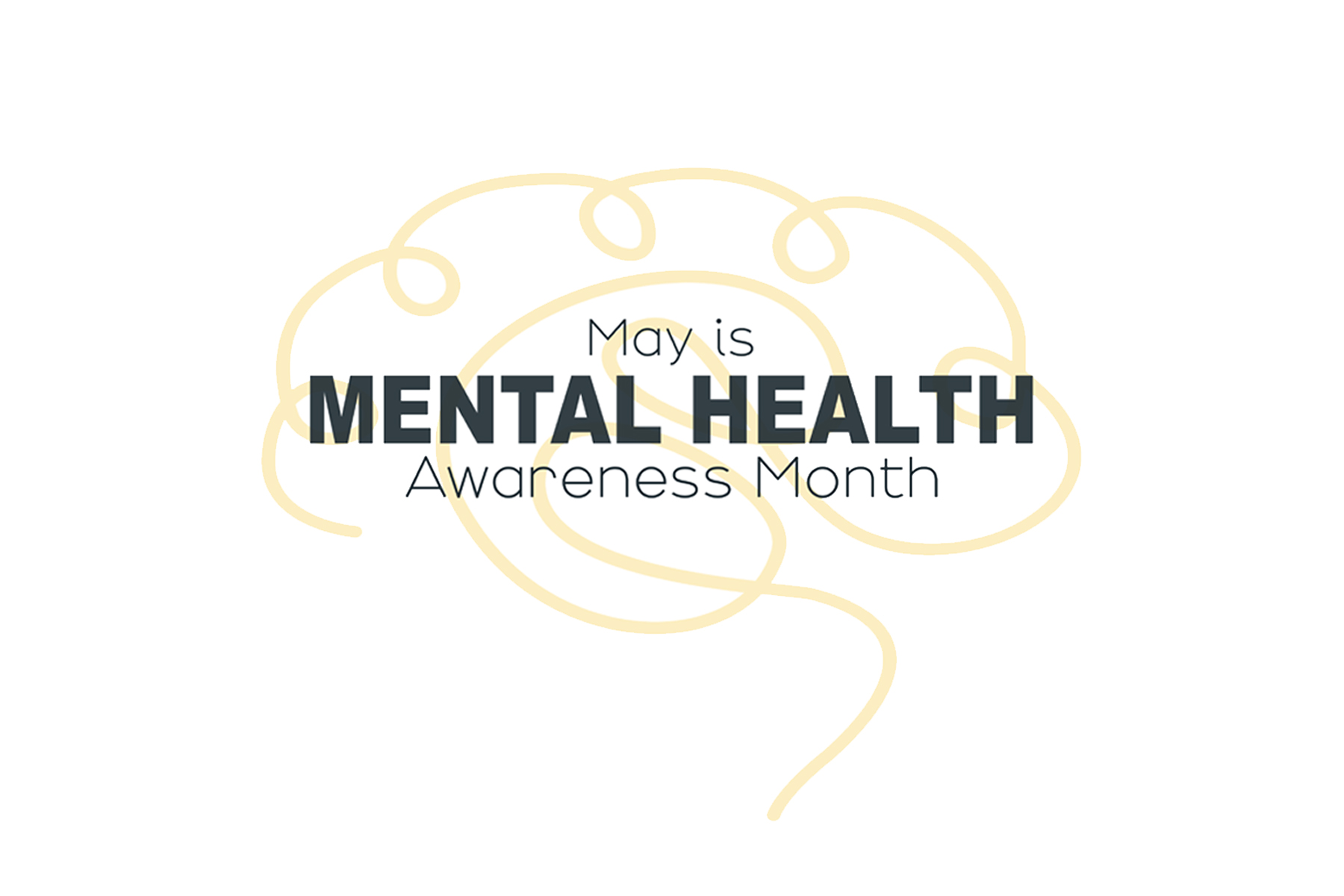By Tony Martin
Editor
May is Mental Health Awareness Month, and if I’m being honest, I wish we didn’t need a special month to talk about mental health. I wish it was already something we discussed as easily as we talk about physical health. But even now — in 2025 — there’s still a stigma. And among many Christians, that stigma runs deep.
Somehow, somewhere along the line, a message took root in the church that if you’re anxious, you must not be praying enough. If you’re depressed, you must not be trusting God. If you need medication or therapy, you must be spiritually weak. That message is not from Jesus.
A personal testimony seems to be in order.
Some years back I suffered a concussion that turned out to be worse than we thought at the time. I was diagnosed with “post-concussion syndrome,” and I’d never heard of it either. Basically, what that means is that years later I’m not over the concussion yet, even though there’s no physical damage evident.
The aftermath for me has been apocalyptic migraines, but fortunately preventive medication seems to have reduced the frequency of them to three or four times a month — when they do hit, I simply must take meds (and I have some good ones — I have a great neurologist) and spend a day in bed. Know how some folks fake being sick to avoid going to work? Some days I have to fake being well so that I can go to work. Being the obsessive researcher that I can be, I’m a textbook patient, with the aura, intolerance to light and sound, severe brain fog (the worst symptom besides the pain), garbled speech, all that. Oh, joys.
Along with that has been the deepest, most dire depression you can imagine. Early on it was scary, because I couldn’t pray my way out of that, which didn’t square with my traditional Christian faith. While I’ve never been suicidal, I’m closer to being on the fence in understanding how people get to that state. But it is very manageable — I got some counseling early on, which was helpful; turns out that objectively I had no reason to be depressed, and that it was more of a chemical thing from a scrambled brain because of the concussion. I’m genuinely fine, most days.
The Lie We Need to Unlearn
The Bible doesn’t teach us to pretend we’re okay when we’re not. In fact, the Scriptures are filled with stories of people who loved God deeply and still wrestled with despair, anxiety, and emotional exhaustion. Let’s take a quick tour, shall we?
- Elijah, fresh off a mountaintop victory over the prophets of Baal, runs for his life into the wilderness. There, under a broom tree, he prays that he might die. “I have had enough, Lord,” he says. “Take my life” (1 Kings 19:4). That’s not just burnout — that’s deep despair.
- David, the man after God’s own heart, wrote in Psalm 42, “Why are you cast down, O my soul, and why are you in turmoil within me?” (v. 5). His psalms are full of cries of anguish and sorrow. He didn’t hide his emotions; he brought them before God.
- Job, after losing everything, sat in ashes and cried out in grief. His friends tried to explain his suffering, but Job knew their answers didn’t satisfy. He didn’t need a lecture — he needed comfort.
- And then there’s Jesus. In the Garden of Gethsemane, He told His disciples, “My soul is overwhelmed with sorrow to the point of death” (Matthew 26:38). If the sinless Son of God could feel such anguish, why do we act like good Christians are supposed to be emotionally bulletproof?
Breaking the Stigma with Truth and Grace
Mental illness is not a sin. Needing help is not a failure of faith. And taking medication or going to therapy doesn’t mean you’ve given up on God — it means you’re cooperating with Him.
Because here’s the good news: Jesus is still the Great Physician. He heals hearts, minds, bodies, and souls. Sometimes miraculously, in an instant. Other times, He works through the steady, skillful hands of counselors, doctors, and medicine.
James 1:17 reminds us that “every good and perfect gift is from above.” That includes therapists who listen without judgment. That includes antidepressants that restore chemical balance. That includes support groups, spiritual mentors, and long walks in God’s creation. These aren’t alternatives to faith — they’re expressions of God’s provision.
Why Christians Struggle with Stigma
I think a lot of the stigma comes from a place of fear. Mental illness can feel invisible, unpredictable, and even scary. It’s easier to keep things neat and tidy — label it as a lack of faith, toss a Bible verse at it, and move on. But that’s not love.
Galatians 6:2 calls us to “carry each other’s burdens,” not to explain them away. Romans 12:15 says to “weep with those who weep.” Not, “quote Scripture until they feel better.” And Jesus? He never shamed the hurting — He moved toward them. Always.
The church should be the safest place for someone struggling with depression, anxiety, or trauma. But too often, we’ve made it a place where people feel like they have to wear a mask and pretend everything’s fine.
It’s time for that to change.
What Can We Do Differently?
Let’s get practical. If we want to be part of the solution — and I know you do — here are a few ways to help break the stigma:
- Talk openly about mental health. Share your story if you’ve walked through it. Be the kind of person someone can confide in without fear of judgment.
- Listen more than you speak. Sometimes the best thing we can do is just be present. You don’t have to fix it. You just have to show up.
- Stop offering spiritual clichés. “Just pray about it” might be true, but if that’s all you say, it can feel dismissive. Prayer is powerful — but so is empathy.
- Encourage people to seek help. Normalize counseling. Support loved ones who are taking medication. Remind them they’re not broken — they’re brave.
- Watch your language. Avoid phrases like “crazy,” “psycho,” or “weak.” Our words shape culture — and we want ours to be full of grace and truth (John 1:14).
- Pray intentionally. Ask God to heal, to guide, to comfort — and to use you as part of someone’s healing journey.
- Be a safe space. Sometimes, the greatest ministry isn’t a sermon — it’s a quiet conversation over coffee, where someone finally feels seen.
Healing is a Process — And God is in It
If you’re reading this and silently struggling, let me say this plainly: You are not alone. You are not a bad Christian. You are not failing.
You’re human.
And Jesus — your Great Physician — sees you. He knows your pain. He walks with you through the valley. He heals in His time, in His way, often using both spiritual and earthly tools. Don’t be afraid to reach out for help. It doesn’t mean you’re giving up on God. It means you’re inviting Him into the mess, trusting Him to work through every resource available.
There’s no shame in the healing process. There’s only grace.
Let’s be a people who reflect that grace — who stop pretending and start embracing, who open our arms to the hurting and our hearts to the hard conversations. May our churches become places of refuge, not performance. And may Mental Health Awareness Month be a spark that helps us light the way with love, compassion, and truth.
You don’t have to be okay to belong. You just have to be honest — and we’ll meet you there.








